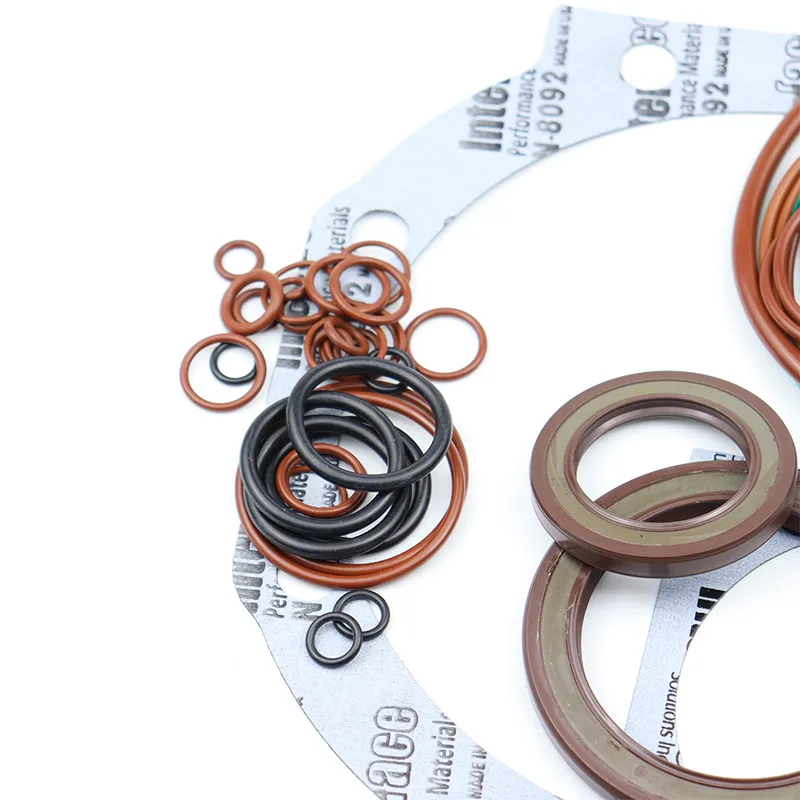11-р сар . 08, 2024 17:30 Back to list
rubber hub seal
Understanding Rubber Hub Seals Importance and Applications
Rubber hub seals are essential components widely used in various mechanical systems to enhance performance and protect against environmental factors. They serve as a barrier between the hub of an assembly and the external environment, preventing contaminants such as dirt, moisture, and debris from entering critical areas, while also retaining lubricants within. This article explores the significance, types, and applications of rubber hub seals.
The Importance of Rubber Hub Seals
1. Protection Against Contaminants The primary function of rubber hub seals is to protect the internal components of mechanical systems from external contaminants. Equipment such as wheel bearings, gearboxes, and hydraulic systems must remain free from dirt and moisture to operate efficiently. A well-sealed hub ensures longevity and reliability, reducing potential downtimes and maintenance costs.
2. Retention of Lubricants Many mechanical systems rely on lubricants to reduce friction between moving parts. Rubber hub seals provide an effective barrier that helps retain these lubricants within the hub, ensuring that all components remain adequately lubricated. This retention not only improves performance but also helps in maintaining optimal operating temperatures.
3. Cost Efficiency By preventing the ingress of dirt and moisture and ensuring the longevity of lubricants, rubber hub seals translate to significant cost savings. Reduced wear and tear on components translates to lower maintenance costs, and consequently, fewer replacements. This cost-effectiveness is particularly beneficial in industries where machinery operates under harsh conditions.
4. Noise and Vibration Reduction Another benefit of rubber hub seals is their ability to reduce noise and vibrations in mechanical systems. By providing a tight seal around hubs, these rubber components can dampen vibrations caused by rotating motions. This makes for a smoother operation, especially in automotive and industrial applications.
Types of Rubber Hub Seals
Rubber hub seals come in various types, each designed to meet specific applications and requirements
1. Single-Lip Seals These are the most common type of rubber hub seals, featuring a single lip that contacts the shaft or hub. They are used in applications where the operating conditions permit minimal external contamination.
2. Double-Lip Seals Double-lip seals provide additional protection, making them suitable for environments where exposure to contaminants is more likely. The extra lip provides a secondary barrier against ingress.
rubber hub seal

3. Tension Seals Tension seals are used in high-pressure applications, as they maintain a constant contact force to ensure a secure seal under varying conditions.
4. Customized Seals In some cases, standard seals do not meet specific application needs. Customized rubber hub seals can be designed to accommodate unique dimensions, materials, and performance requirements.
Applications of Rubber Hub Seals
Rubber hub seals are utilized across a wide spectrum of industries, including
1. Automotive Industry Here, they play a vital role in wheel bearings, axle assemblies, and transmission systems. The durability of rubber hub seals contributes significantly to the reliability of vehicles.
2. Manufacturing and Industrial Equipment Machinery used in manufacturing processes often requires rubber hub seals to protect essential components from contamination, ensuring smooth operation.
3. Aerospace Engineering Given the stringent requirements for reliability and performance, rubber hub seals are used in various aircraft systems, including landing gear and engine components.
4. Marine Applications In marine environments, rubber hub seals are crucial for preventing water ingress into critical systems, thus ensuring the safety and reliability of vessels.
Conclusion
In summary, rubber hub seals are vital components that ensure the optimal performance and longevity of mechanical systems across numerous industries. Their ability to protect against contaminants, retain lubricants, reduce noise and vibrations, and provide cost efficiency makes them indispensable. Understanding the importance of these seals and choosing the right type for specific applications can significantly enhance the performance and reliability of equipment, fostering smoother operations and extending service life.
-
TCN Oil Seal Metal Ring Reinforcement for Heavy Machinery
NewsJul.25,2025
-
Rotary Lip Seal Spring-Loaded Design for High-Speed Applications
NewsJul.25,2025
-
Hydraulic Cylinder Seals Polyurethane Material for High-Impact Jobs
NewsJul.25,2025
-
High Pressure Oil Seal Polyurethane Coating Wear Resistance
NewsJul.25,2025
-
Dust Proof Seal Double Lip Design for Construction Equipment
NewsJul.25,2025
-
Hub Seal Polyurethane Wear Resistance in Agricultural Vehicles
NewsJul.25,2025
-
The Trans-formative Journey of Wheel Hub Oil Seals
NewsJun.06,2025
Products categories
















